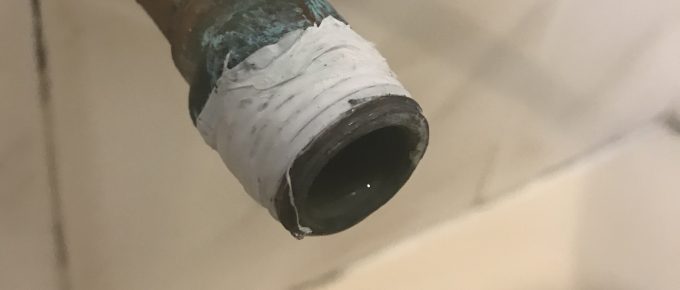
When something happens that impacts the livability of a rental property, a tenant will typically want the issue resolved quickly. Sometimes it can be confusing who is responsible to make rental property emergency repairs as the landlord is expected to resolve certain issues while others fall to the tenant.
Who is responsible for emergency repairs of a rental property?
When damage suddenly happens to a rental property, who is responsible for repairs? In most jurisdictions, a landlord has the duty to repair vital facilities throughout the term of the lease to keep the home safe, sanitary and habitable. When damages or other events affect a tenant’s normal use of the home, it is the landlord’s responsibility to fix these issues at no cost to the tenant.
However, not every defect or inconvenience impacts the habitability of the rental. Furthermore, when the damage has been caused by the tenant through abnormal use or harmful behavior, the tenant is responsible for the repair.
What is considered an emergency repair?
Any type of issue that may cause damage to the home or personal property, health or harm to individuals should be considered an emergency.
While there is no definitive list of issues that could require emergency repair, here are some examples to give you an idea.
Water leaks – If there is water flowing from a sink or toilet onto the floor and it cannot be controlled.
Heating system failure – When temperatures get very cold and the heating system suddenly stops working.
Broken windows or door locks – When climate can impact the inside temperature, or someone can access your apartment or rental causing a safety issue.
Plumbing inoperable – Sudden lack of hot or cold water altogether, or broken toilet can create unsanitary conditions.
Electricity failure – Newly exposed wires, or if electricity fails throughout the rental, could cause a dangerous condition.
Use your judgement. If a defect can cause further damage to a person or property, it is time to get help. Smart landlords, who don’t want a call in the middle of the night for a clogged toilet, often include a list of conditions that are considered an emergency within the lease agreement.
How do I request a repair to my rental property if there is an emergency?
The first thing you should do is evaluate if the issue is serious enough to be considered an emergency. Could the issue damage property or cause injury to someone? Does your lease indicate conditions that are considered an emergency?
Renters should use common sense before contacting a landlord or property manager. What can you quickly do to mitigate the issue from causing further damage? If there is a leak, can you shut off water or put a bucket under it.
If the issue happened in the middle of the afternoon, contacting your landlord right away makes sense as someone might be able to get there soon to make a repair. If the issue happens in the middle of the night, consider if it is something that can wait until later. Obviously if you have rushing water that is uncontrollable, do not hesitate.
Tenants should have the landlord or property manager’s contact information handy in case an emergency arises. When you have an issue that needs immediate attention, call, text and/or email the appropriate person immediately. The sooner they are aware of the issue, the quicker action can be taken to remedy the problem.
Finally, be sure to check your lease for any instructions on repairs, emergency or otherwise. It is always a good idea to provide your landlord with a Repair Notice in writing that explains the issue, exactly when you noticed it and when you called for help.
What is a reasonable time for a landlord to make emergency repairs?
A landlord typically has between 1-7 days to repair critical facilities, and up to 30 days to fix non-critical issues. The exact amount of time depends on state landlord-tenant law however, it is in a landlord’s best interest to resolve issues sooner rather than later.
Each state has its own laws regarding how long a landlord has to resolve critical repairs, such as those that prevent habitability. Most states require repairs within 3-7 days. However, depending on the circumstance, some repairs may take longer than others to fix.
For example, if a large tree falls on the roof of the home, it may take a few days for an insurance company to access the damage and a tree service to remove the tree. If repairs are needed to the roof, that can take longer.
On the other hand, if a pipe bursts and water is pouring on the floor, a landlord should at least be able to turn off the water to prevent further damage. A plumber may then be needed to fix the faulty pipe.
A landlord who wants to preserve the value of the rental property as well as the relationship with tenants will resolve most issues immediately. Although, sometimes that is not always the case.
What can I do if my landlord refuses to make a repair that requires immediate attention?
Whether your landlord refused to make a repair or is taking too long, a renter needs to use common sense and abide by state law. If you are in a dangerous situation, then get yourself to safety. If your belongings are about to be damaged, move them so they are protected.
Consider making the repair yourself – When a landlord is not responsive to an emergency repair in your rental, consider having a repair completed yourself. In the example above, if water is pouring on the floor and you can’t get in touch with your landlord, it may make sense to fix it yourself, or call a plumber to complete an emergency repair.
For other emergency cases that are less dire, try to get a few estimates from reputable contractors. Always get a receipt with details of the repairs that were made so you can send this to the landlord.
Before attempting any repairs you should always consult your lease. A landlord may not be willing to pay for any repairs you made or hired someone to do. A contractor’s prices may also be much higher than your landlord would be willing to pay. However, during an emergency that threatens your health or further damage, stopping the problem even temporarily makes sense.
If the landlord does not agree to pay, many states will allow you to make a repair and deduct the amount from the rent.
For other issues, a renter might be able to withhold rent until a repair is made.
Always check your state’s laws before assuming it applies to you.
When a landlord is not responsive – There are a few options you can consider when a landlord is not responsive to your calls for an emergency repair. A renter can report the issue to the housing inspector or health inspector for code violations. Upon review, the city or town may call the landlord into court to force them to remedy the situation.
A tenant may also decide to break their lease under the rule of Constructive Eviction. This can happen if a landlord is guilty of neglect for allowing the premises to be unsafe, unfit or unsuitable for occupancy.
Finally, if leaving your rental or apartment is not an option, you can pursue legal assistance to force the landlord to complete the needed repairs.
Can a landlord make a tenant pay for repairs?
In some situations, a tenant may be the one responsible to pay for emergency repairs. If a tenant causes damage that is beyond normal wear and tear on the property and this results in the need for repair, the landlord can charge the tenant.
A few examples might be:
- Pizza boxes that were not disposed of resulting in an infestation
- Broken window caused by tenant
- Renter clogging drain requiring a plumber
When this happens, the landlord should communicate with the tenant and provide them with a formal Notice of Repair. A good rental lease will have details on how repairs should be handled and when it may be the tenant’s responsibility. It should really not be a surprise to the tenant that they owe money for the repair.
The bottom line is that the tenant should expect to return the property to the landlord in the exact condition it was originally rented, with normal wear and tear.
Getting past the repairs to your rental
From broken pipes to fallen trees to a furnace that stops working on the coldest day of the year, all homes can have issues. Tenants should use common sense when rental property emergency repairs are needed to minimize damage. Always communicate with your landlord and be sure to abide by your lease and state laws. Most of the time your emergency will get resolved and you will be able to continue living in your property as you did before the incident.
